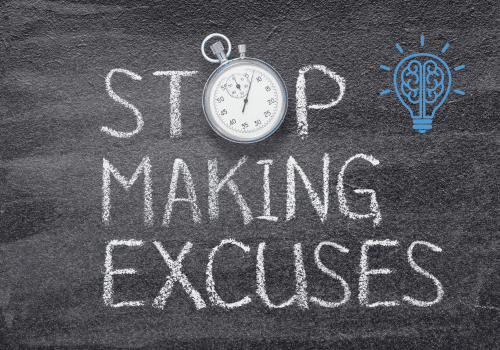🧠 “I put my keys down just a second ago—where did they go? And wasn’t I supposed to do something today?”
If you constantly forget important things, you’re not alone. Many people struggle with remembering appointments, deadlines, or even where they last put their phone. It can be frustrating, especially when it impacts work, relationships, or daily responsibilities.
Forgetfulness isn’t just about being “scatterbrained”—it’s closely linked to executive function skills like working memory, attention, and organization. If these skills aren’t working efficiently, remembering even critical details can feel like an uphill battle. But the good news? There are strategies to improve memory and stay on top of important information.
🔍 Why Do I Keep Forgetting Things?
Memory lapses can be caused by a variety of factors, but they often stem from executive function challenges. Here are some common reasons why you might be struggling:
📌 Weak Working Memory
Working memory helps us hold and use information in real time. If it’s overloaded, details can slip through the cracks before they’re stored in long-term memory.
🔄 Constant Task Switching
Jumping between emails, texts, and to-do lists makes it harder to encode information properly, leading to forgetfulness.
⚡ Stress and Mental Fatigue
High stress levels and exhaustion make it harder for the brain to process and store new information effectively.
📅 Lack of External Memory Systems
Relying only on your brain to remember everything is inefficient. Without calendars, reminders, or lists, information can get lost.
⏳ Poor Attention Control
If you weren’t fully paying attention when you received a piece of information, your brain may never have properly stored it in the first place.
🚨 How Forgetfulness Affects Your Life
Frequent forgetfulness can lead to daily frustrations and even serious consequences, such as:
- 📅 Missing important meetings or appointments
- 🔑 Constantly misplacing personal items
- 📧 Forgetting to follow up on emails or tasks
- 😕 Struggling to recall conversations or commitments
- ⚡ Increased stress and last-minute scrambling
The key to improving memory isn’t just trying harder—it’s about building systems that support your brain’s natural strengths.
🎯 Strategies to Improve Memory and Reduce Forgetfulness
Rather than relying on willpower, use these proven techniques to stop forgetting important things:
📅 Use External Memory Aids
Don’t rely on your brain alone. Use calendars, digital reminders, sticky notes, or apps to track important information.
📝 Write Things Down Immediately
If you don’t record a task or appointment right away, there’s a high chance you’ll forget it. Keep a small notebook or use a notes app for quick capture.
🔄 Create a Consistent Routine
Routines reduce the mental effort required to remember tasks. Set up structured habits, like checking your planner every morning or placing your keys in the same spot.
🎧 Minimize Distractions
When receiving important information, reduce background noise and distractions. Fully engaging with what you hear helps it stick.
⏳ Use the “Chunking” Technique
Break large pieces of information into smaller, manageable parts. This makes details easier to recall.
🎮 Make It More Engaging
Attach personal meaning, visual cues, or even humor to information you need to remember. Our brains retain emotionally significant details better.
⏲️ Set Up Timed Reminders
Use phone alarms or smart assistant reminders to prompt you before important tasks or appointments.
🔄 Repeat and Review
Revisiting information at intervals (spaced repetition) helps move details from short-term to long-term memory.
🧠 How Executive Function Coaching Can Help
If you struggle to stop forgetting important things, executive function coaching can provide personalized strategies to help you improve memory, organization, and follow-through.
With coaching, you can learn how to:
- 📅 Build an effective external memory system
- 🔄 Strengthen working memory for better recall
- 📝 Develop structured routines to reduce forgetfulness
- 🎯 Improve focus and attention to retain information better
Forgetfulness isn’t a personal failing—it’s a signal that your brain needs better systems and strategies. With the right tools, you can regain control of your memory and stop missing important details.
Want to improve your memory and stay on top of things? Contact us for executive function coaching today!




